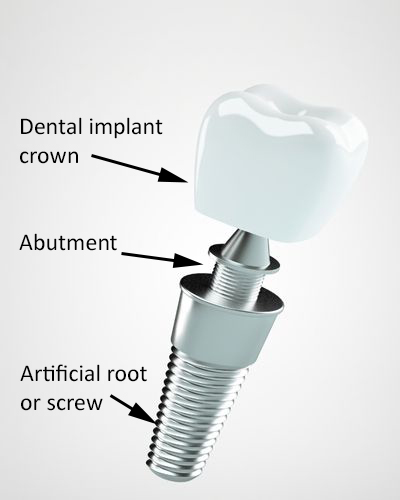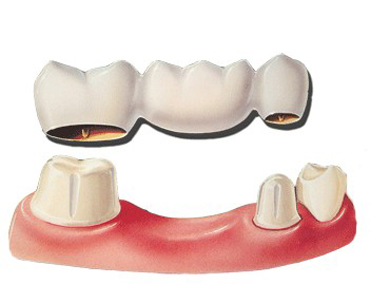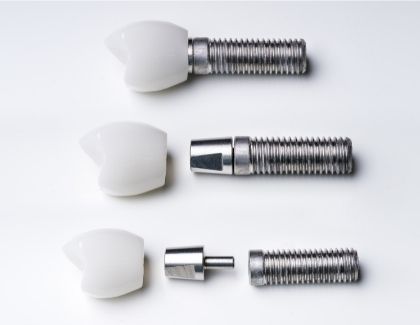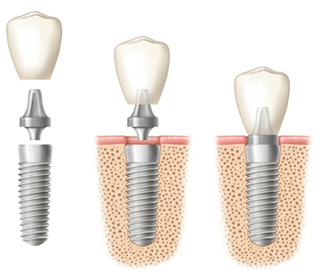I’ve had the same dentist for the past seven years and had no reservations about her placing my dental implants. Several co-workers referred me to this dentist, and three of them had great success with implants from the dentist.
My case must have been unusual for her because she said I needed bone grafting before getting my first implant. After four months, my dentist attempted the implant but said she needed to remove it because the bone was too shallow. I’ve had three surgeries, and I still don’t have a dental implant. I have much respect for my dentist, but I must ask, would I have had a better experience if I had chosen a specialist? – Thanks. Bennie from Tampa
Bennie,
While dental implantology isn’t a formally recognized specialty, some dentists, oral surgeons, and periodontists have advanced training in this area.

After successful bone grafting and dental implant placement, a cosmetic dentist can attach a natural-looking crown
We understand your dentist’s intentions and potential experience with implants. However, bone grafting is a complex procedure that requires specific expertise. Your dentist may be relatively new to this aspect of implant dentistry. Remember, every professional, even the most skilled, has a learning curve when using new techniques.
It’s commendable that your dentist is being honest about the situation. A less ethical practitioner might have proceeded with the implant, potentially leading to complications down the line.
Your dentist’s transparency suggests a commitment to a positive outcome. Dental bridges and implants are viable options for a single tooth replacement, each with advantages and disadvantages. If you prefer a dental implant, consider asking your dentist for a referral to a periodontist (implant specialist), or oral surgeon for bone grafting and implant placement.
After the implant heals, your dentist can restore it with a natural-looking implant crown.
Lowell, Massachusetts, accredited cosmetic dentist Dr. Michael Szarek sponsors this post. Read how Dr. Szarek strives to give his patients the best dental care in Lowell.



